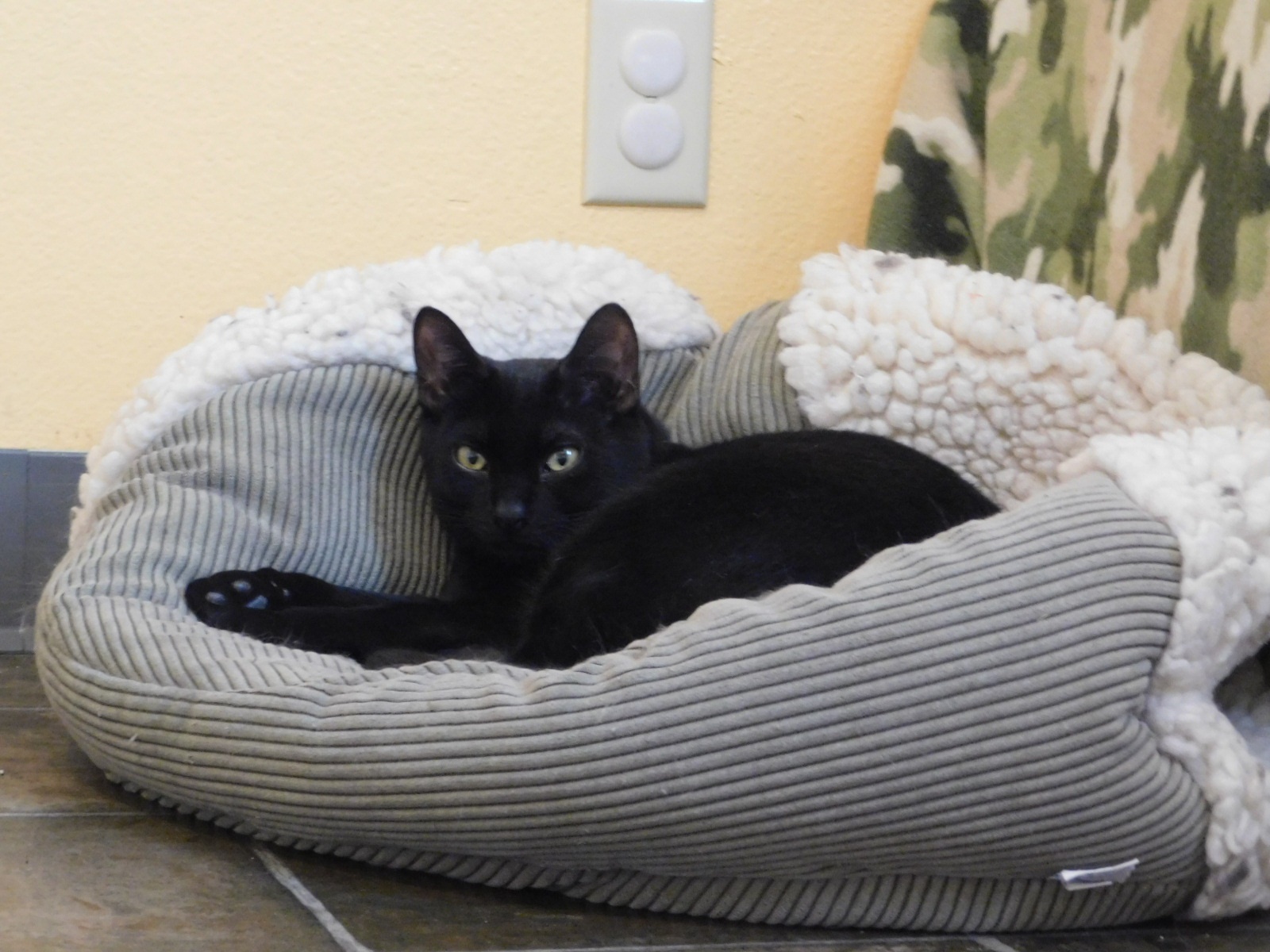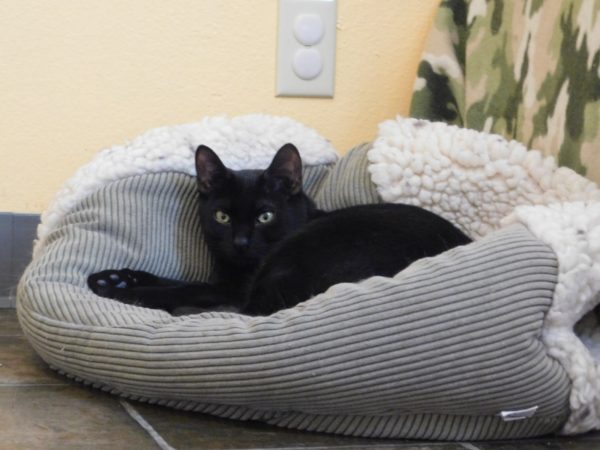
27 Feb Second Chance: Mr. Microchip is Your Friend
Second Chance Humane Society’s Animal Resource Center and Thrift Shops have been servicing San Miguel, Ouray & Montrose Counties for over 26 years. Call the Second Chance Helpline at 626-2273 to report a lost pet, learn about adopting a homeless pet, or about Spay/Neuter, Volunteer, Feral Cat, or other services. View our shelter pets and services online: www.adoptmountainpets.org.

Jellybean
Jelly Bean here, a homeless kitty at the Second Chance Humane Society Shelter. I am one of many pets at Second Chance who arrived without any identification, making it rather difficult for me to be returned to my family. So today’s Pet Column lesson is one word: Microchip. (And for y’all that spell it as two words…well you are wrong.)
Microchips are our friends, not to be feared. They save lives. With approximately 6.5 million companion animals ending up in shelters across the country each year (and 1.5 million euthanized), keeping a form of identification on your pet is a simple remedy. But sadly, only about 710,000 animals who enter shelters annually are returned to their owners (yes, out of 6.5 million!).
But we have the ability to easily transform these dreary statistics simply by using microchip. For readers unfamiliar with this little wonder, microchips are harmless and very tiny, the size of a grain of rice. They are implanted quickly and painlessly into subcutaneous layer of your pet’s skin. The serial number they are encoded with can be read by a scanner and tracked immediately to the pet parent listed in the database.
Despite rumors to the contrary, regular microchips do not have GPS capability to locate a missing pet (although those do exist now…), so your pet can not be tracked by a government entity or identified beyond a range of about three to 12 inches. A microchip implant helps to recover lost pets turned into an animal shelter, animal control, veterinarian’s office, or any entity utilizing scanners to identify lost pets.
Microchips do not require a battery or other power source, so they are good for the life of your pet and they are virtually free of health risks. (The American Veterinary Medical Association data collection on pet microchips since 1996 have shown only 391 adverse reactions among over 4 million pets microchipped, less than 0.0001 percent.)
As with any ID method, it is imperative for pet parents to keep their database information current. More than once pets have arrived at Second Chance with a microchip that did not link to an active phone or address, thus rendering it useless.
And now thanks to Second Chance’s regular low-income, low-cost medical clinics you can call them (number below) to sign your pet up for a free wellness check and add on an $15 microchip (as well as a menu of other low-cost options like spay/neuter and vaccinations)!
About Me.
Although I don’t care for jellybeans they are sweet like me and a preferable moniker to the one they call Nutter Butter. I am a 4-month-young kitten rescued from wandering about all alone and very hungry (not fun). I am shy, but with lots of patience and love I know I will transform into an affectionate and playful family member.
Bonus, like all Second Chance shelter pets, I have recently been microchipped so after you adopt me you will never lose me. Now come get your Jelly Bean!


Sorry, the comment form is closed at this time.